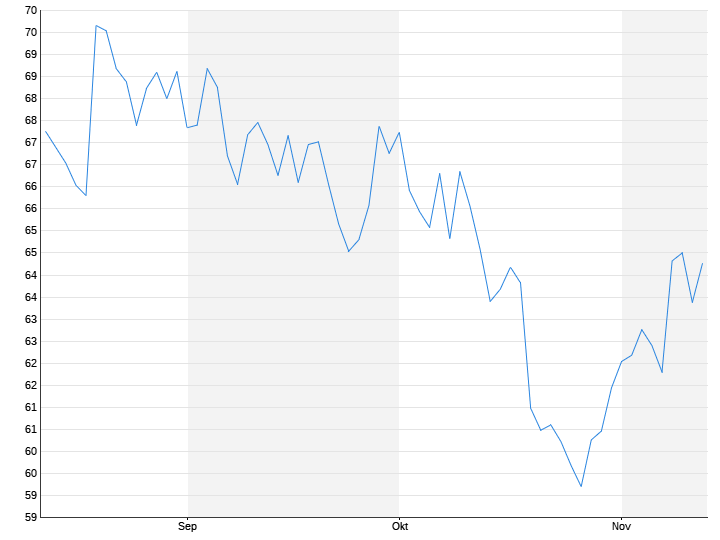Thousands of jobs are being lost
Continental has to save a lot
November 13, 2023, 3:48 p.m
Continental is in crisis. In recent years, the tire division has had to bring in the money to cover investments in automotive supply. The group now wants to reduce expenses through extensive job cuts. A medium four-digit number of jobs will be eliminated.
The car supplier and tire manufacturer Continental wants to make its ailing car supply division profitable again by cutting thousands of jobs. From 2025, an annual cost reduction of 400 million euros in the administrative area will take effect, as the DAX company announced in Hanover. According to Conti, it is not yet clear exactly how many jobs will be affected.
The number is likely to be in the mid four-digit range, it said. At the weekend, “Manager Magazin” reported on around 5,500 jobs being lost worldwide. That would be around five percent of the employees in the division. Division boss Philipp von Hirschheydt wants to streamline the administrative structures and thus accelerate the decision-making processes. Among other things, business areas will be bundled more closely; the previous six will become five. At the end of September, the automotive supply business had 102,574 employees, and the group as a whole had 203,593.
Continental plans to make all measures as socially acceptable as possible, the company said. In addition, research and development spending will come under scrutiny. “These measures increase efficiency and effectiveness and strengthen our competitiveness,” said von Hirschheydt.
Tire division is the profit generator in the group
Conti has been in crisis in the automotive supply sector for a long time and is struggling to stay operationally in the black in the business of – among other things – brakes, interior equipment, sensors and electronics. Most recently, Conti was able to present black figures in day-to-day business in the division for the third quarter – that is, when certain depreciation on previous acquisitions and other special factors are deducted. When special costs are taken into account, there was again a loss before interest and taxes – albeit a small one.
With regard to the adjusted operating result, Conti made money for the last time in the 2019 financial year, and there was also an operating loss in the first half of this year. Like other industry representatives, Conti must also invest heavily in future technology, for example for autonomous driving and for the general expansion of software skills. “Our goal is a sustainably profitable division that can make investments in its future on its own,” said von Hirschheydt.
With the losses in recent years, the tire division often had to bring in the money in order to be able to finance investments in automotive supplies. For some time now, the tire division has been the group’s profit generator with high and largely stable margins, although the automotive supply business also contributes the majority of sales.
Capital Markets Day is intended to present investors with a route
Conti CEO Nikolai Setzer, who ran the automotive supply business before Hirschheydt, is becoming more and more on the defensive with the weak business. The last major austerity program was set up by his predecessor Elmar Degenhart. It should reduce annual gross costs in the group by 850 million euros by this year. It probably didn’t help much in the car sector. At the beginning of next month (December 4th), the group wants to present its future strategic route to its long-suffering investors at a capital market day, after which further details about the desired savings efforts are likely to come to the table.
Radical plans are circulating in media such as “Manager Magazin” – Chairman of the Supervisory Board Wolfgang Reitzle sees the future of Conti primarily in the tire and plastics technology sector. The company itself does not want to comment on this in detail. In view of the poor automotive economy in recent years, especially for suppliers, due to high costs and the shift towards electric motors, the supplier industry is currently in flux anyway.
The rolling bearing and gearbox manufacturer Schaeffler, for example, wants to take over the drive specialist Vitesco. With the deal, the Schaeffler industrial family would have access to the Regensburg-based company’s know-how in the growing area of electric drives. Conti is the former parent company of Vitesco – and the Schaefflers also have an important say in the Hanover-based company with a 46 percent share of the shares.
